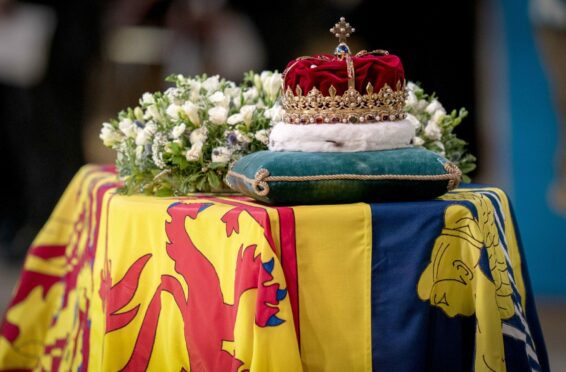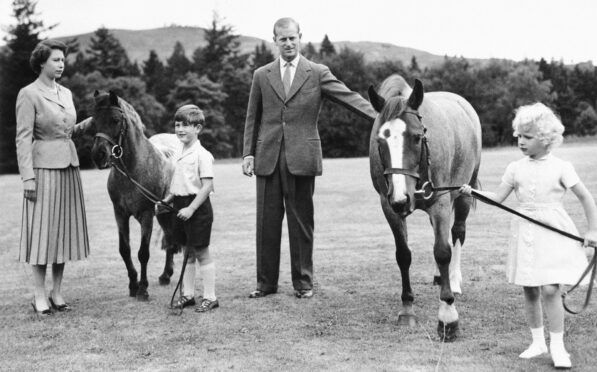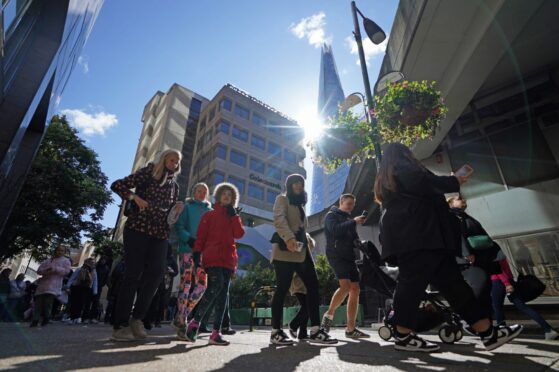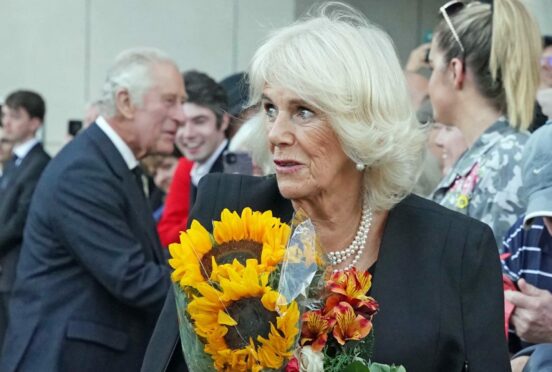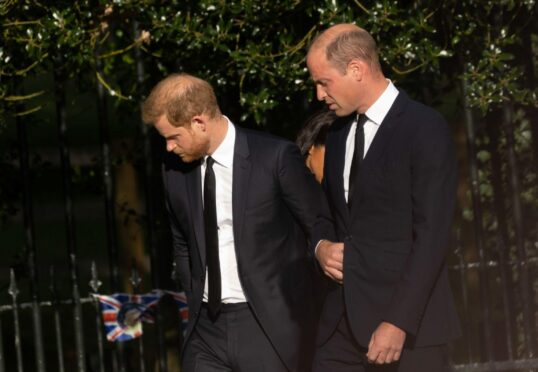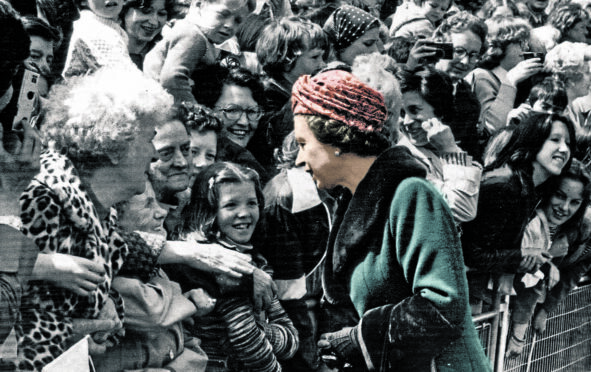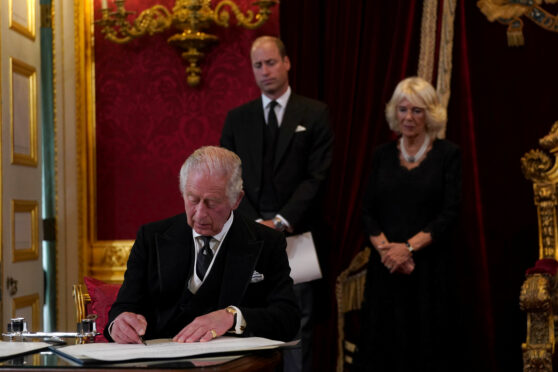
King Charles yesterday paid tribute to his mother and promised to follow her inspiring example as he was formally declared the nation’s new monarch.
He was proclaimed King in an ancient ceremony at St James’s Palace in London on the country’s second day of mourning following Queen Elizabeth’s death at Balmoral on Thursday, aged 96.
Today, her coffin will be driven from Balmoral to Edinburgh in a six-hour journey when thousands of Scots are expected to pay their respects along the route. After being flown from Edinburgh to London on Tuesday, the Queen will lie in state before her funeral six days later.
The Accession Council, which was televised for the first time, only meets on the death of a monarch to proclaim the new king or queen. Held in the state apartments of St James’s Palace in London, it was attended by Queen consort Camilla, William, the new Prince of Wales, Prime Minister Liz Truss, First Minister Nicola Sturgeon and six former prime ministers.
During the poignant, sombre meeting, Charles spoke movingly about his mother and his family’s grief. He told the council: “It is my most sorrowful duty to announce to you the death of my beloved mother, the Queen. I know how deeply you, the entire nation – and I think I may say the whole world – sympathise with me in the irreparable loss we have all suffered.
“It is the greatest consolation to me to know of the sympathy expressed by so many to my sister and brothers and that such overwhelming affection and support should be extended to our whole family in our loss.
“To all of us as a family, as to this kingdom and the wider family of nations of which it is a part, my mother gave an example of lifelong love and of selfless service.”
Standing before the throne, the King paid tribute to her reign “unequalled in its duration, its dedication and its devotion” and said he was deeply aware of the duties and responsibilities of sovereignty that now passed to him.
He said: “In taking up these responsibilities, I shall strive to follow the inspiring example I have been set in upholding constitutional government and to seek the peace, harmony and prosperity of the peoples of these islands and of the Commonwealth realms and territories throughout the world.”
Later, brothers Prince William and Harry, along with their wives Kate and Meghan, put their differences aside to appear together outside Windsor Castle, where they looked at some of the floral tributes and spoke to members of the public who had gathered there.
Earlier William had paid tribute to the Queen in a statement released by Kensington Palace. He said that while he grieved the loss of his grandmother, he also felt grateful to her.
“I have had the benefit of the Queen’s wisdom and reassurance into my fifth decade. My wife has had 20 years of her guidance and support. My three children have got to spend holidays with her and create memories that will last their whole lives.
“She was by my side at my happiest moments. And she was by my side during the saddest days of my life. I knew this day would come, but it will be some time before the reality of life without Grannie will truly feel real.”
Yesterday the warmth of his relationship with his stepmother Camilla was clear to see as he offered her a steadying hand as she stepped onto the platform for the Accession ceremony.
More than 200 privy councillors – a group of mostly senior politicians past and present, members of the monarchy and other national figures – were present and stood to hear the Clerk of the Council read the Accession Proclamation.
Among them were ex-prime ministers Sir John Major, Sir Tony Blair, Gordon Brown, David Cameron, Theresa May and Boris Johnson, who took their places in the front behind a low, black-roped barrier.
Truss, who became prime minister on Tuesday after meeting the Queen at Balmoral, was part of the proceedings and stood at the head of the council with Camilla, William, Archbishop of York Justin Welby and other figures as the clerk read the proclamation.
The historic event was broadcast for the first time, giving the world a first glimpse of an ancient ceremony dating back centuries and one of the first changes to convention instigated by the new King.
The new monarch became King the moment his mother died, but an Accession Council must be convened following the death of a sovereign, usually within 24 hours. It last met when King George VI died in 1952.
The Accession Council is chaired by the Lord President of the Council – now Penny Mordaunt – who is also the Leader of the House of Commons.
Mordaunt, who was one of the Conservative leadership candidates to replace Boris Johnson, was appointed Leader of the Commons when Truss became prime minister.
Following convention, the King did not attend the first part of the ceremony when the clerk of the council, Richard Tilbrook, read the proclamation to the packed meeting that confirmed the new monarch.
His address was made in the second part of the ceremony – when proceedings moved to the palace’s throne room – and was effectively the King hosting his first Privy Council meeting.
He also approved a bank holiday across the UK on the day of the funeral of the Queen, to be held on Monday, September 19 at 11am. The Royal Mail has confirmed it will suspend its services on that day.
The new King also took the oath to preserve the Church of Scotland – because in Scotland there is a division of powers between the church and state.
He signed an oath acknowledging the fact, also signed by First Minister Nicola Sturgeon.
The first public proclamation took place from the Friar Court balcony of St James’s Palace to the crowds gathered below, which was followed by a rendition of God Save The King and “Three cheers for the King”.
The national anthem was performed by the Band of the Coldstream Guards alongside eight State Trumpeters of the Household Cavalry who were stood on the balcony.
A second reading of the Accession Proclamation outside the Royal Exchange in the City of London was met with applause and cheers of: “God Save The King”.
Thousands had gathered to witness the proclamation and sang the chorus of the national anthem, singing “King” in place of “Queen”.
Those gathered outside the exchange followed the anthem with three cheers for Charles.
The second reading of the proclamation was performed by Timothy Duke, the Clarenceux King of Arms, in front of the Lord Mayor, Court of Aldermen, High Officers and members of the Common Council.
The Coldstream Guards stood to attention as the proclamation was read out.
The proclamation will also be read out in Edinburgh, Cardiff, Belfast and other locations across the Commonwealth at midday today.
Meanwhile, Truss and other party leaders took the oath of allegiance to the new king as parliament met for a rare Saturday sitting.
A select group of senior MPs were given the chance to formally pledge their loyalty to Charles at the Commons despatch box.
The Cabinet also had an audience with Charles when Truss took her senior ministers to Buckingham Palace to be received by the sovereign for the first time.
Meanwhile, religious leaders from faiths across Scotland united to offer prayers for the new king.
A statement from senior clergy in the Scottish Church Leaders’ Forum thanked the Queen for her “faithful service as sovereign”.
They added that they joined with “people of good faith everywhere in offering our prayers for His Majesty King Charles III and the royal family at this time”.

Enjoy the convenience of having The Sunday Post delivered as a digital ePaper straight to your smartphone, tablet or computer.
Subscribe for only £5.49 a month and enjoy all the benefits of the printed paper as a digital replica.
Subscribe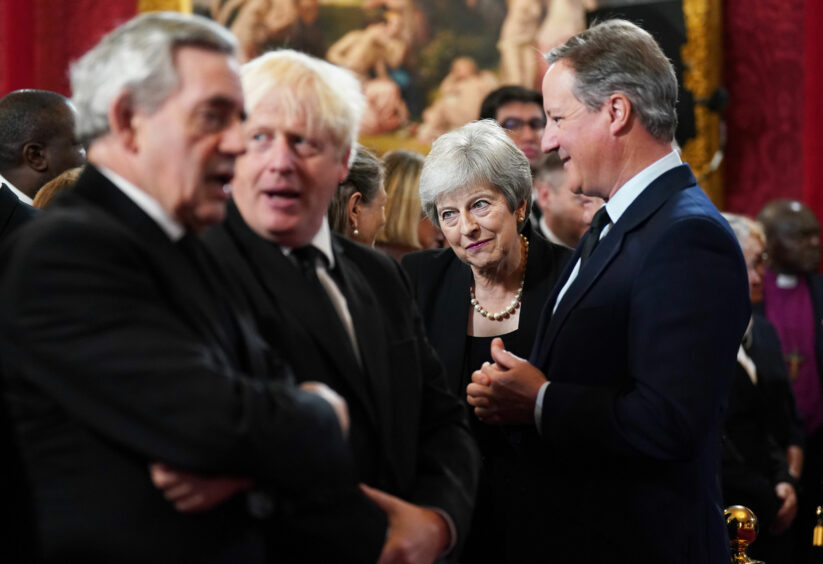
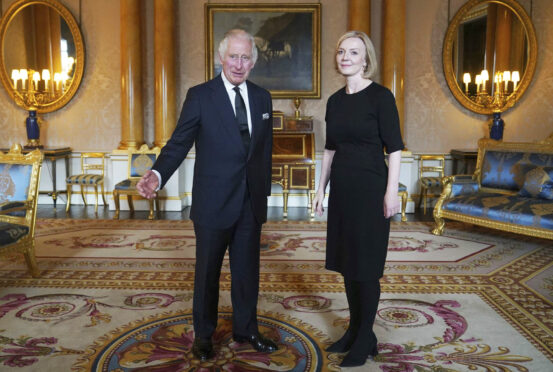
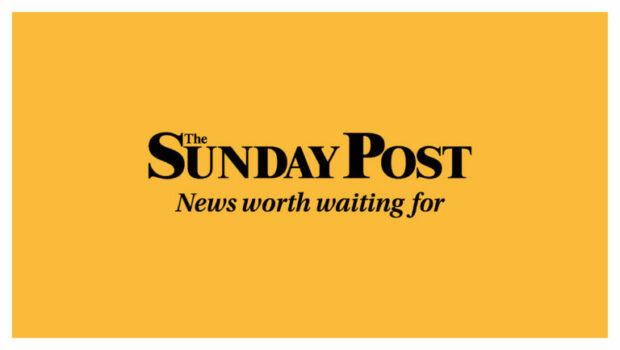
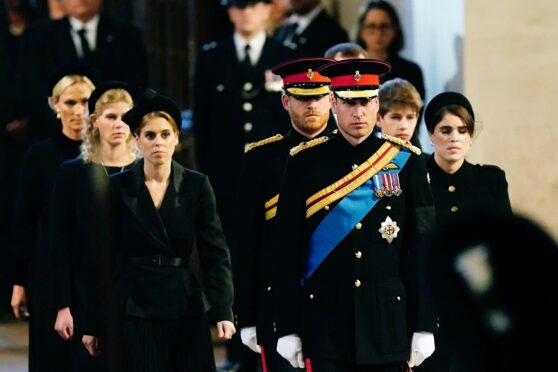
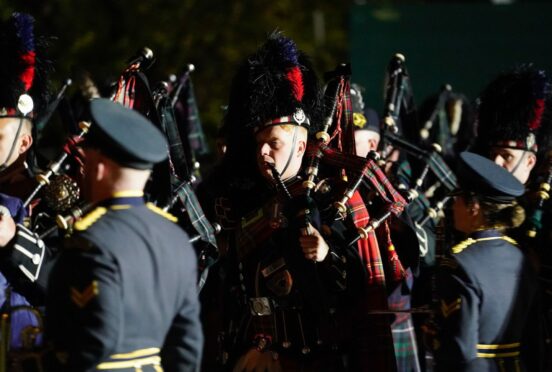
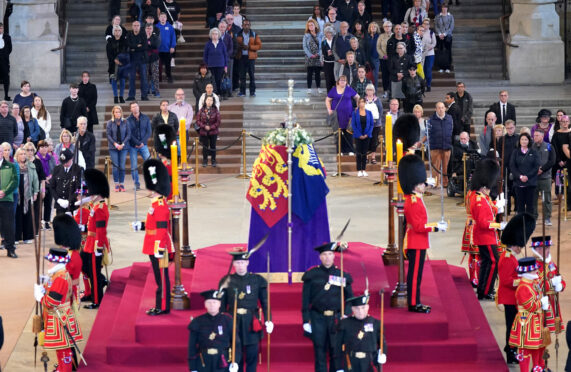
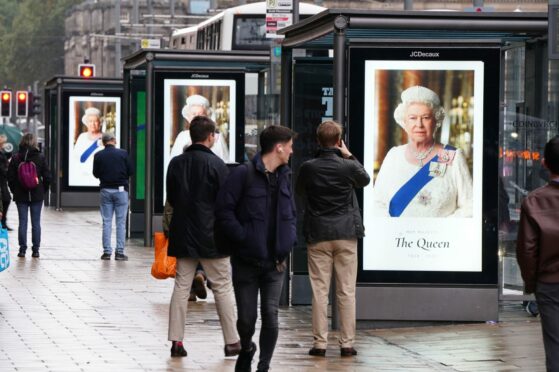
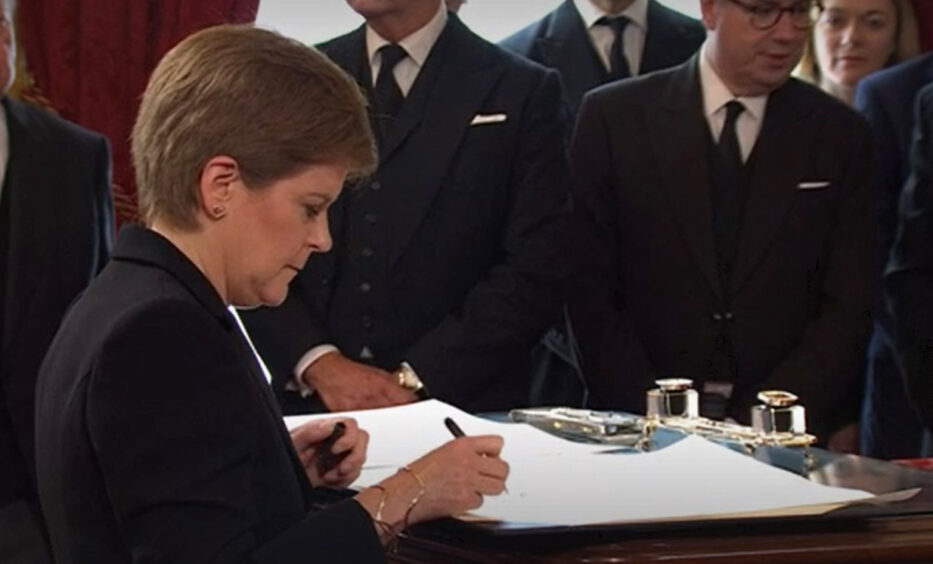 © Supplied by BBC Screengrab
© Supplied by BBC Screengrab